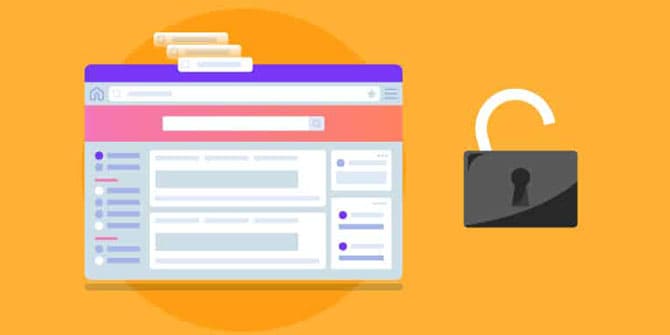Privacy Canada is community-supported. We may earn a commission when make a purchase through one of our links. Learn more.
How Facebook and Google Use Your Data
As the worldwide web has matured over the past two decades, two titans of the industry have emerged as dominating forces online. The origin stories of Google and Facebook are well known. Google’s first search engine began in 1996 as a research project at Stanford. The Facebook social network launched in 2004 as Mark Zuckerberg’s side project at Harvard.
As these two companies have gone public on the stock market and reached users in every country and on every continent, they have been forced to become more than just a handy internet tool. They are now full-fledged corporations that interact with more data than anyone has ever imagined.
But what exactly do Facebook and Google do with the petabytes of information that flow through its servers on a daily basis? There are a multitude of answers to that question, and we’ll explore them all in this article.
Advertising
As mentioned, Google and Facebook are both publicly-traded companies on the stock market and are therefore expected to show growth and profitability to investors and shareholders. Like a lot of digital companies that cater to general consumers of the internet, they rely on advertising as their primary form of revenue.
As a general rule, when you sign up for a new account on a social network or other website and do not have to pay a fee or subscription, then you should expect to see a lot of advertising. In essence, your behavior on the site and data being collected is the asset of value to the company.
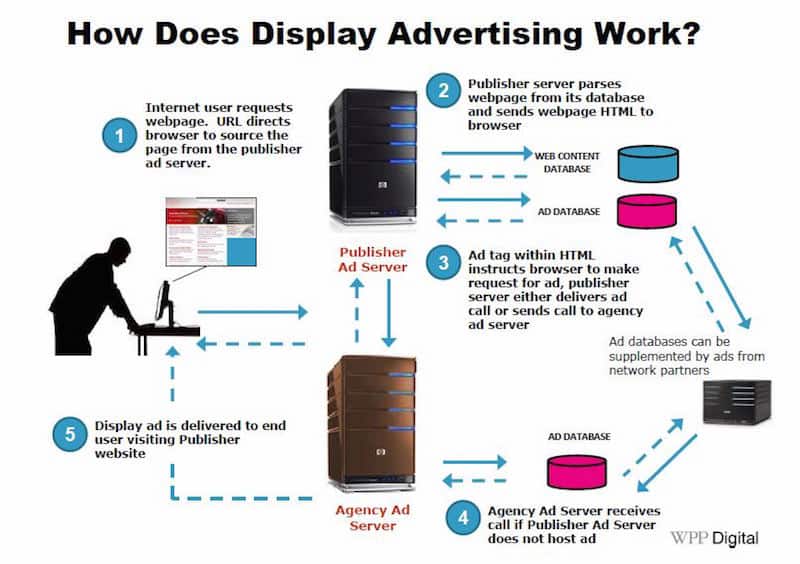
Online advertising has gained a negative reputation, but the concept behind it is not evil in nature. For a search engine like Google, the idea is to show you advertisements alongside your search results with the hope of attracting you to a product related to your query. The same is true for social networks like Facebook: they aim to display relevant ads based on your history of interests and likes.
Outside companies bid on-screen real estate to win the right to display their own advertisements, usually based on keywords. Social networks are able to charge advertisers more money when using a targeted system, rather than just displaying a generic set of ads to all users. This is why advertisers often spend more money on online campaigns than they normally would with newspapers or other print formats.
Without tracking your behavior and activity on their websites and applications, Google and Facebook would not be able to serve relevant advertisements in their system. According to their privacy policies, both companies say that user data is never shared directly with third parties. Rather, the system is managed completely through internal algorithms to match advertisers with relevant users.
If you are eager to be more anonymous while using Google and Facebook while still maintaining one account on each platform, you should look into a virtual private network (VPN) clients. A VPN creates a secure tunnel from your home or office network to the open internet, with all data sent of an encrypted channel.
Not only does a great VPN help to protect you from hackers and cybercriminals, but it also makes you harder to track online. A VPN client issues a new IP address each time you launch a connection. Google and Facebook will still be able to track your activity while logged in, but they will have a harder time identifying your geographic location. Check out our review of NordVPN or Surfshark for a quick look at how powerful these services could be.
User Experience and Product Development
Both Google and Facebook aim to deliver a personalized experience to each and every user. That’s why when you run a new Google search while logged in, the site will remember your search history and what sites you’ve clicked on in the past. The same goes for Facebook, as users’ timelines are filled with content that they’ve previously liked or followed.
All websites rely on a network of back-end databases to store critical information about users accessing the front-end. Companies like Google and Facebook rely on this data to deliver a positive user experience that is customized for each individual user.
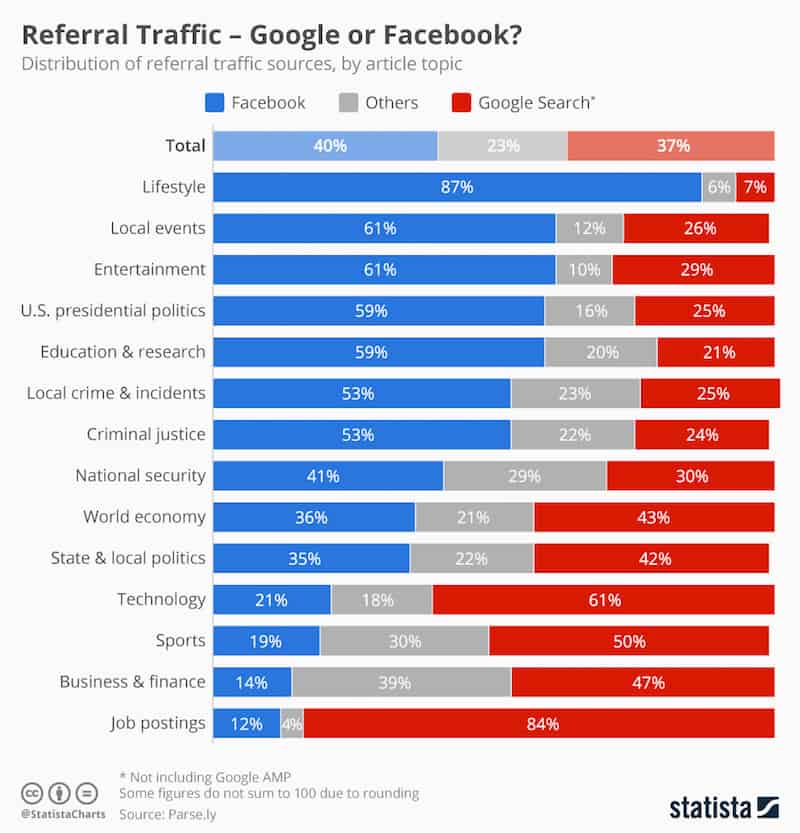
Given that their sites and applications have billions of users worldwide, there is no feasible way for Google or Facebook to keep in contact with each person and survey their opinions. Instead, the companies actually harvest and analyze the user data they collect to gain a better understanding of what is working and what isn’t working within their product offerings. Don’t get confused between survey vs questionnaire.
For example, in tracking the usage within the Gmail tool, Google was able to determine that a large percentage of users were forgetting to attach documents to outgoing emails and were then having to send a follow-up message. To help, Google deployed a new Gmail feature that would scan outgoing messages for mention of an attachment and then remind the user to include the file before clicking the send button.
Facebook also leverages user data to help guide product decisions. As the company grew, it discovered that users were relying on the mobile application’s mailbox feature like a text messaging tool. To provide better user experience, Facebook decided to shift the functionality into a dedicated app called Messenger.
Account Integration
As Google and Facebook have grown, they’ve expanded far beyond their original product intentions. Google is much more than just a search engine, with dedicated tools for email, video streaming, cloud hosting, and mapping. The same is true for Facebook, as it has moved beyond just one social network and now owns apps like Instagram while also developing their own hardware.
Internet users have come to expect the web to be fast and easy to use. That means they want to reduce the number of accounts and passwords they have to remember on a daily basis. Google and Facebook both use their data systems to make the internet more convenient for their users.

Once you are logged in on a computer or mobile device to Google or Facebook, your credentials will automatically work on any product within their suite of tools. In addition, as you browse the web and stumble upon other sites or apps, you’ll often find that you can log in to them using a Google or Facebook account rather than creating brand new credentials. Some users, however, will prefer to use a secure password manager tool to handle all of their credentials.
When your children are old enough to register for Google or Facebook, which is typically the age of 13, it may be best for your kids’ online protection to control where they are allowed to use those credentials. If they are allowed to spread their accounts to other places on the web, it could leave them more vulnerable to attacks or bullying.
Government Requests
When you sign up for an account with Google or Facebook, you are accepting a certain level of risk. Your username is tied to every action and click you perform on these sites, and you should keep in mind that the companies who own the back-end systems can access this information at any time.
Where this concern really comes into play is with national governments. Many developed nations, including the United States, Australia, and Canada, have legislation in place to dictate when a government agency can seize data from an internet company. In most cases, the request has to come about from a matter of national security.
For example, if a government believes that a suspected terrorist group has been communicated over a channel owned by Google or Facebook, they can issue a request to the company to turn over records from a specific user, timeframe, or range of IP addresses. The company does not need to notify you if your information is included in what they collect.
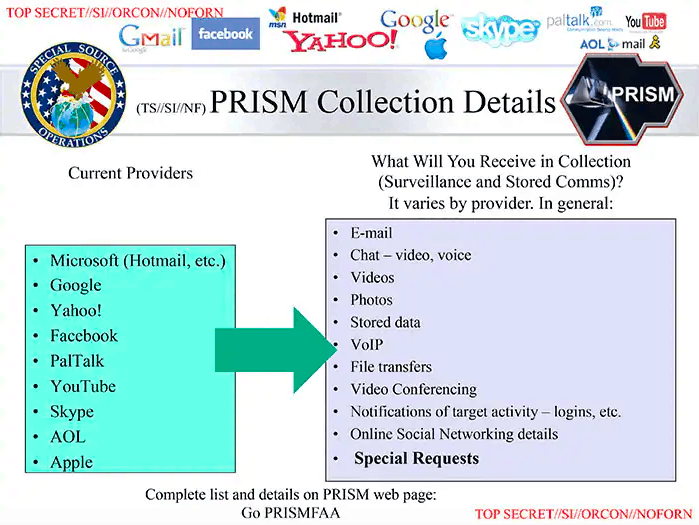
But are those the only cases where governments can gain access to big websites like Google or Facebook? Based on the revelations that Edward Snowden uncovered in 2013, it is very likely that major governments and international institutions have backdoor access to systems for the purpose of monitoring suspicious activity.
The fact that these types of backdoors exist is worrisome, because it means there is a greater likelihood that hackers may be able to infiltrate the systems behind them. It’s one of the reasons why online privacy has become such a hot topic in recent years.
Data Science
The concept of big data has been around for the better part of a decade. Its basic argument is that companies should store as much information as possible because with more data comes better analysis and more informed decision making. Not only that, but big data is actually proving capable of pushing new technologies forward.
Google and Facebook are both heavily involved in the machine learning movement, where companies are trying to teach software to identify patterns and trends across large data sets. The goal is to develop algorithms that improve over time and continue to evolve, ultimately building towards a future where artificial reality is possible.
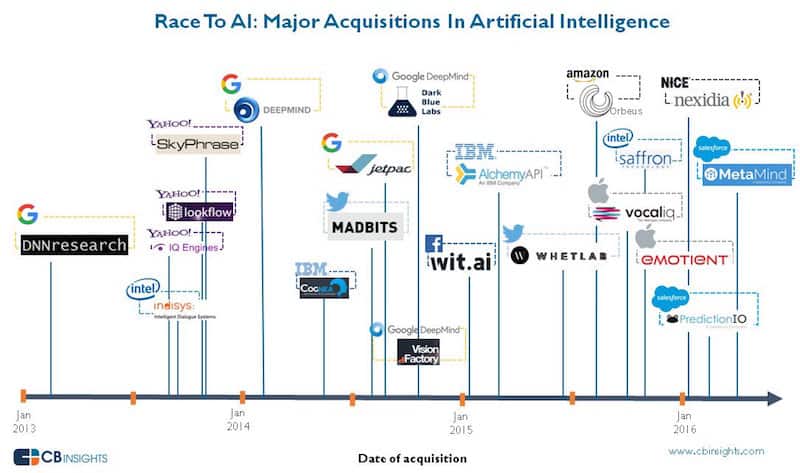
For example, Google’s list of suggested search results is built on a big data engine. Their machine learning algorithms are constantly analyzing the new queries being run every second, and the output is a comprehensive understanding of what is trending worldwide and how society’s behavior is shifting.
For Facebook, machine learning has come into play with their advancements in facial recognition technology. Since the early days of the social network, users have loved the photo storage and sharing functionality. And each time a user uploaded a new photo or album, they were always prompted to tag individual people with their name.
Thanks to machine learning algorithms, Facebook’s system can now actually identify specific faces in new photos without you having to provide any information at all. Features like these are not always accurate or correct, but they do represent an impressive advancement in what technology is capable of doing in the future.
The Bottom Line
The way these two household tech giants use your data probably astounds and makes you nervous at the same time. The reality is that, every time you go online, your data is being collected, saved, and analyzed in more ways than you’d like to know.
The genie is already out of the bottle though. Unless you decide to go offline completely or that newfangled blockchain technology eventually allows us to take back control of our data, expect, for better and for worse, Facebook and Google will continue to make our information the centerpiece product that leads to their profit.



